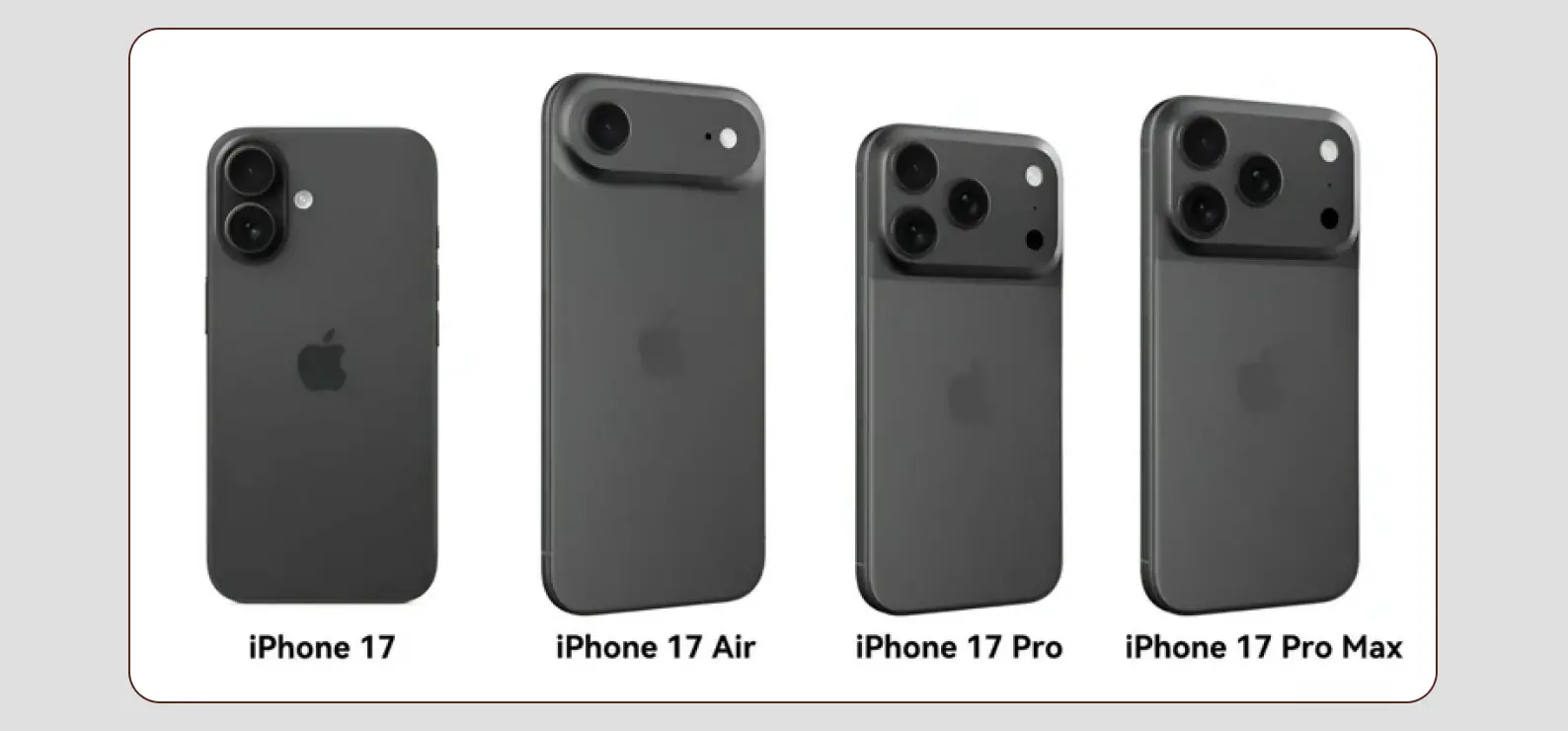In the highly anticipated launch of Apple`s latest smartphone lineup, early pre-order data from Russia offers a fascinating, albeit somewhat predictable, glimpse into consumer preferences. While the new iPhone 17 series as a whole demonstrates robust demand, it`s a tale of two extremes for individual models: the iPhone 17 Pro Max has emphatically seized the crown, leaving the much-hyped iPhone Air struggling to gain traction.
According to reports from major Russian retail networks, the premium iPhone 17 Pro Max accounted for a staggering 42% of all pre-orders for the new Apple smartphone range. In stark contrast, the ultra-thin iPhone Air, touted as a fresh take on Apple`s design philosophy, garnered a mere 4% of pre-orders. This discrepancy highlights a critical dynamic in one of Apple`s key international markets.
The Unyielding Allure of `Max` Performance
Why does the `Max` appeal continue to dominate? The answer, at least in the Russian market, appears to be a straightforward pursuit of the absolute best. Consumers investing in a premium smartphone often seek a device that makes no compromises: the largest screen, the most advanced camera system, the longest battery life, and the highest processing power. The iPhone 17 Pro Max embodies this philosophy, positioning itself as the definitive statement in mobile technology.
For many, particularly in markets where technology upgrades might occur less frequently due to various economic factors, purchasing the top-tier model represents a desire for longevity and future-proofing. It’s an investment, and if one is to invest, why settle for anything less than the pinnacle? This mindset often translates into a preference for devices that not only perform exceptionally today but are also perceived to hold their value and relevance for years to come. Moreover, the `Pro Max` nomenclature itself carries a certain prestige, signaling status and an uncompromising approach to mobile computing.
iPhone Air: A Flight Path Interrupted?
The reception of the iPhone Air, with its modest 4% share, presents a compelling counter-narrative. The “Air” branding has historically signified lightness, portability, and perhaps a more minimalist or streamlined experience – think MacBook Air. In the smartphone realm, it was speculated to offer an exceptionally thin and light form factor, potentially at a slightly more accessible premium price point than the Pro Max, but still firmly within the flagship segment.
However, it appears Russian consumers are not swayed by svelte dimensions alone. One might cynically suggest that “Air” in this context translates to “compromise” in areas like battery capacity, advanced camera features, or overall raw power, which are often the first to be sacrificed for extreme thinness. For a market that clearly gravitates towards “Max” features, an “Air” model, no matter how elegant, might be seen as less of a technological marvel and more of a specialized niche device. Perhaps the market simply wasn`t ready for, or didn`t perceive the value in, a smartphone that prioritizes extreme thinness over the comprehensive feature set offered by its Pro Max sibling.
The irony is palpable: while Apple tirelessly engineers thinner, lighter devices, a significant portion of its affluent clientele unequivocally declares, “Give us the thickest, most powerful one you`ve got!” It`s a testament to the persistent human desire for more, rather than less, when it comes to coveted technology.
Beyond the Flagships: A Healthy Ecosystem
While the spotlight is firmly on the contrasting fortunes of the iPhone 17 Pro Max and iPhone Air, the broader picture for Apple in Russia remains remarkably strong. Overall demand for the base iPhone 17 model is reported to be 2.5 times higher than that for the iPhone 16 at its launch last year. This indicates robust brand loyalty and a continued appetite for Apple`s core smartphone offering, even amidst a diverse and competitive market landscape.
Furthermore, demand for Apple`s peripheral devices, such as the AirPods Pro 3 and Watch Ultra 3, has also seen a significant surge. This underscores the power of Apple`s integrated ecosystem, where consumers not only buy into a single device but often invest in a suite of products that seamlessly work together. The high demand for top-tier accessories like the Watch Ultra 3 (the “Max” equivalent for watches) further reinforces the preference for premium, feature-rich options.
Implications for Apple`s Global Strategy
The Russian pre-order data offers valuable insights for Apple`s global product strategy. It suggests that while innovation in form factors like the iPhone Air is appreciated for its engineering prowess, mainstream consumer demand, particularly in the high-end segment, remains firmly rooted in maximizing performance, features, and overall utility. The “Pro Max” philosophy clearly resonates, potentially guiding future development priorities.
For Apple, understanding these nuanced market preferences is crucial. It`s not just about what technology can be built, but what technology will be bought. In Russia, at least for this generation, the answer is unequivocally “more,” not “less.”

